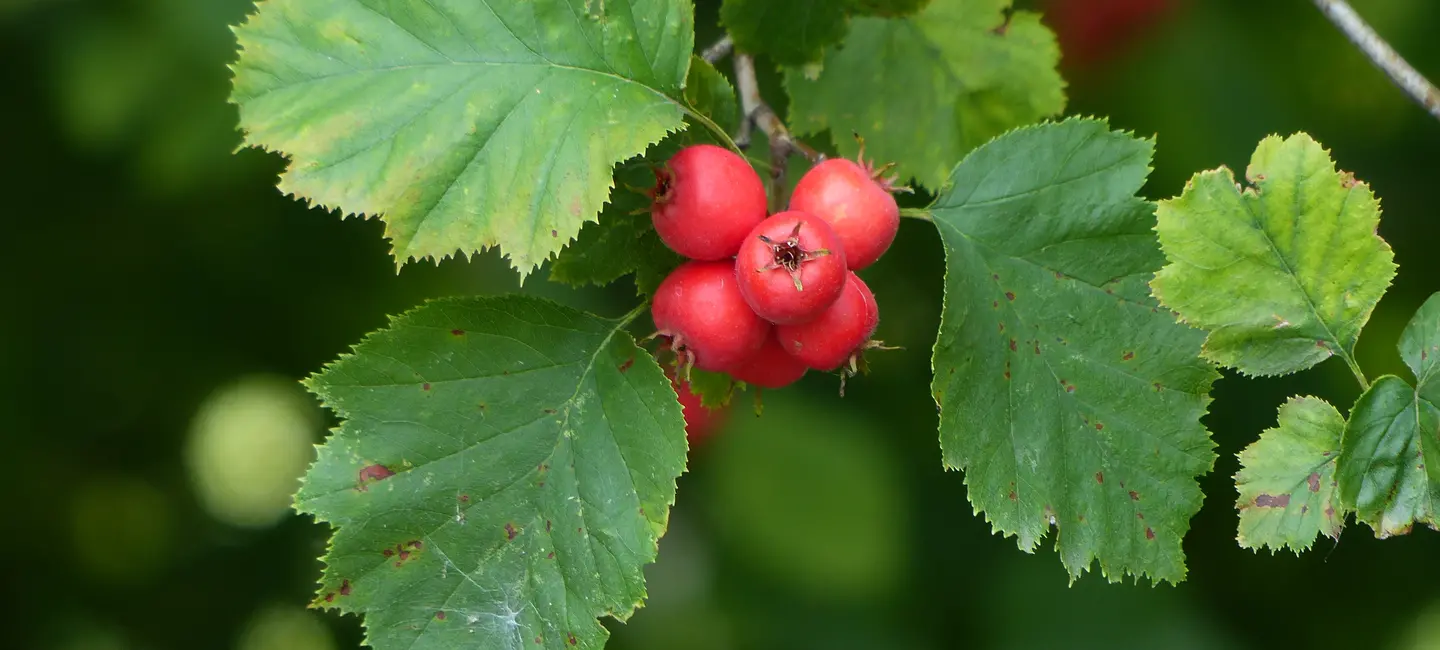
Hawthorn is a flowering shrub in the rose family. Common species include Crataegus monogyna, Crataegus laevigata, and Crataegus oxyacantha.
The hawthorn leaves, berries, and flowers are used as medicine. They contain chemicals called flavonoids, which have antioxidant effects. Hawthorn also seems to improve blood circulation and affect blood flow from the heart.
People most commonly use hawthorn for chest pain, heart failure, blood circulation problems, high blood pressure, anxiety, and many other conditions, but there is no good scientific evidence to support these uses.
Is It Effective?
There is interest in using hawthorn for a number of purposes, but there isn't enough reliable information to say whether it might be helpful.
Is it Safe?
When taken by mouth: Hawthorn is possibly safe when used in doses up to 1800 mg daily for up to 16 weeks. There isn't enough reliable information to know if hawthorn is safe when used for longer than 16 weeks. Hawthorn is usually well-tolerated.
When applied to the skin: There isn't enough reliable information to know if hawthorn is safe or what the side effects might be.
Special Precautions & Warnings:
Pregnancy and breast-feeding: There isn't enough reliable information to know if hawthorn is safe to use when pregnant or breast-feeding. Stay on the safe side and avoid use.
Heart disease: Hawthorn can interact with many prescription drugs used to treat heart disease. If you have a heart condition, don't use hawthorn without talking to your healthcare provider.
Surgery: Hawthorn might slow blood clotting and increase the risk of bleeding during and after surgery. Stop using hawthorn at least 2 weeks before a scheduled surgery.
Digoxin (Lanoxin)
Interaction Rating=Moderate Be cautious with this combination.
Digoxin helps the heart beat more strongly. Hawthorn also seems to affect the heart. Taking hawthorn along with digoxin might increase the effects of digoxin and increase the risk of side effects.
Medications for high blood pressure (Beta-blockers)
Interaction Rating=Moderate Be cautious with this combination.
Hawthorn might lower blood pressure. Taking hawthorn along with medications that lower blood pressure might cause blood pressure to go too low. Monitor your blood pressure closely.
Medications for high blood pressure (Calcium channel blockers)
Interaction Rating=Moderate Be cautious with this combination.
Hawthorn might lower blood pressure. Taking hawthorn along with medications that lower blood pressure might cause blood pressure to go too low. Monitor your blood pressure closely.
Medications for male sexual dysfunction (Phosphodiesterase-5 inhibitors)
Interaction Rating=Major Do not take this combination.
Hawthorn might lower blood pressure. Some medications for male sexual dysfunction can also lower blood pressure. Taking hawthorn along with medications for male sexual dysfunction might cause your blood pressure to go too low.
Medications that increase blood flow to the heart (Nitrates)
Interaction Rating=Major Do not take this combination.
Hawthorn increases blood flow. Taking hawthorn with medications that also increase blood flow to the heart might increase the chance of dizziness and lightheadedness.
Medications that slow blood clotting (Anticoagulant / Antiplatelet drugs)
Interaction Rating=Moderate Be cautious with this combination.
Hawthorn might slow blood clotting. Taking hawthorn along with medications that also slow blood clotting might increase the risk of bruising and bleeding.
Herbs and supplements that might lower blood pressure: Hawthorn might lower blood pressure. Taking it with other supplements that have the same effect might cause blood pressure to drop too much. Examples of supplements with this effect include andrographis, casein peptides, L-arginine, niacin, and stinging nettle.
Herbs and supplements that might slow blood clotting: Hawthorn might slow blood clotting and increase the risk of bleeding. Taking it with other supplements with similar effects might increase the risk of bleeding in some people. Examples of supplements with this effect include garlic, ginger, ginkgo, nattokinase, and Panax ginseng.
There are no known interactions with foods.
Hawthorn extract has most often been used by adults in doses of 160-1200 mg by mouth daily. Speak with a healthcare provider to find out what dose might be best for a specific condition.
Aubepine, Aubépine, Aubépine Blanche, Aubépine Épineuse, Bianco Spino, Bois de Mai, Cenellier, Chinese Hawthorn, Crataegi Flos, Crataegi Folium, Crataegi Folium Cum Flore, Crataegi Fructus, Crataegus cuneata, Crataegus kulingensis, Crataegus laevigata, Crataegus monogyna, Crataegus oxyacantha, Crataegus pentagyna, Crataegus pinnatifida, Crataegus rhipidophylla, English Hawthorn, Epine Blanche, Epine de Mai, Espino Blanco, Fructus Crataegi, Haagdorn, Hagedorn, Harthorne, Haw, Hawthrone, Hedgethorn, LI 132, LI132, May, Maybush, Maythorn, Mehlbeebaum, Meidorn, Mespilus laevigata, Nan Shanzha, Noble Épine, Oneseed Hawthorn, Poire d'Oiseaux, Sable Épine, Shanzha, Shen Zha, Weissdorn, Whitehorn, WS 1442, WS1442.
Information on this website is for informational use only and is not intended to replace professional medical advice, diagnosis, or treatment. While evidence-based, it is not guaranteed to be error-free and is not intended to meet any particular user’s needs or requirements or to cover all possible uses, safety concerns, interactions, outcomes, or adverse effects. Always check with your doctor or other medical professional before making healthcare decisions (including taking any medication) and do not delay or disregard seeking medical advice or treatment based on any information displayed on this website.
© TRC Healthcare 2024. All rights reserved. Use and/or distribution is permitted only pursuant to a valid license or other permission from TRC Healthcare.
